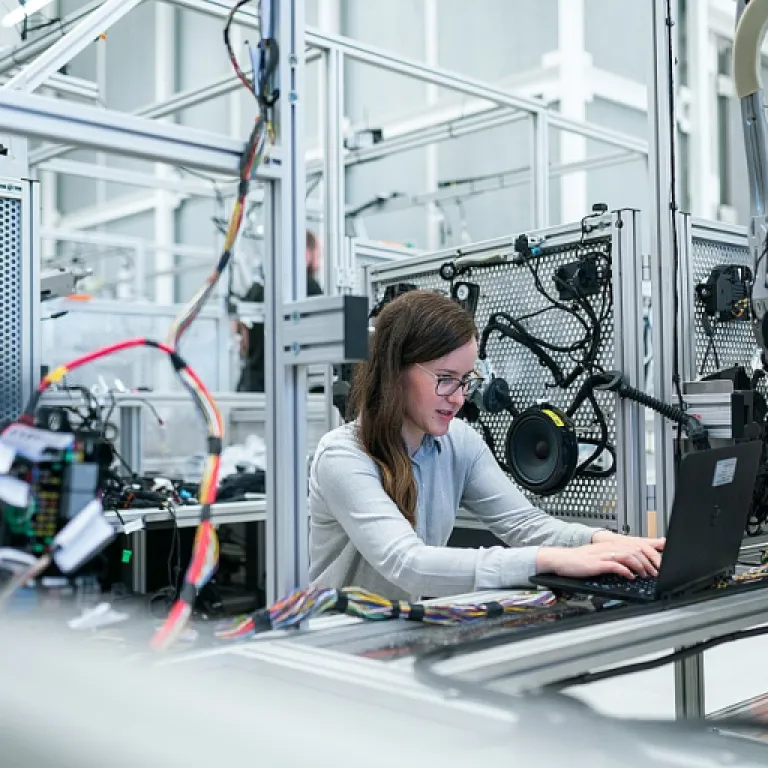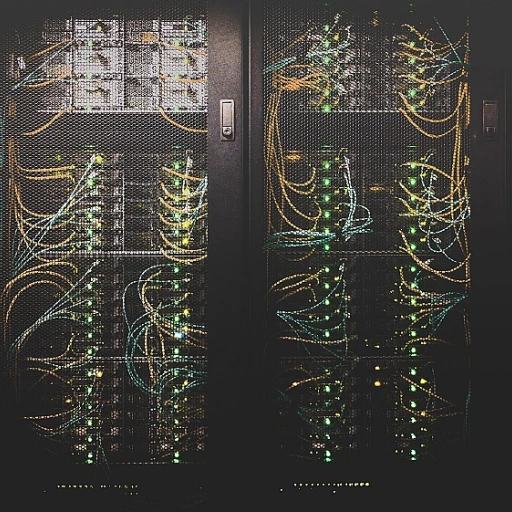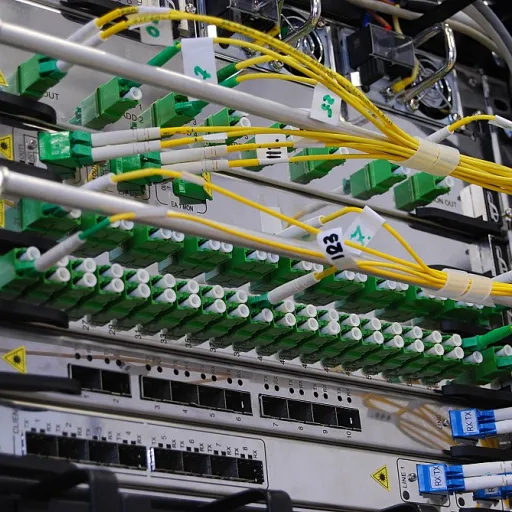
The Evolving Role of Engineers in Software Development
The Dynamic Landscape of Software Engineering
In the rapidly evolving world of software development, the role of engineers is undergoing significant transformation. As technology advances, the responsibilities and expectations placed on engineers are shifting, requiring a blend of both technical skills and soft skills. This evolution is not just about keeping up with the latest tools and technologies but also about adapting to new business needs and project demands.
Engineers today are expected to be more than just coders. They are seen as leaders who can guide teams through complex projects, ensuring that design plans align with best practices and business objectives. This shift is particularly evident in the distinction between senior engineers and staff engineers, where the former often focuses on honing technical direction and the latter on broader technical leadership and management roles.
As we delve deeper into the roles of senior and staff engineers, it becomes clear that their responsibilities are not just about individual contributions but also about fostering a collaborative environment. This involves mentoring team members, overseeing design processes, and ensuring that the team is aligned with the organization's strategic goals.
For those interested in how these roles are adapting to modern challenges, exploring the impact of automation on engineering roles provides valuable insights. As automation becomes more prevalent, the need for engineers to adapt and lead in new ways becomes even more critical.
Defining the Senior Engineer
Exploring the Senior Engineer Role
The role of a senior engineer is pivotal in the landscape of software development. These professionals are often seen as the backbone of technical teams, bringing a wealth of experience and expertise to the table. Senior engineers are tasked with a variety of responsibilities that require both technical skills and soft skills.
In terms of technical direction, senior engineers are expected to have a deep understanding of the technologies they work with. They are responsible for overseeing design and implementation, ensuring that projects adhere to best practices and meet the required standards. Their technical leadership is crucial in guiding less experienced team members and providing mentorship.
Beyond technical prowess, senior engineers play a significant role in project management. They often lead teams, coordinating efforts and ensuring that projects are completed on time and within budget. This requires a blend of leadership and management skills, as they must balance the needs of the business with the capabilities of their team.
Senior engineers are also involved in strategic planning, contributing to the long-term vision of the engineering department. They work closely with staff engineers and other senior staff to align technical goals with business objectives. This collaboration is essential for driving innovation and maintaining competitive advantage.
For those looking to understand the challenges faced by senior engineers, exploring the common challenges they encounter can provide valuable insights into the demands of this role.
Understanding the Staff Engineer
Exploring the Role of a Staff Engineer
In the dynamic landscape of software development, the role of a staff engineer is pivotal in bridging the gap between technical execution and strategic oversight. Unlike their senior counterparts, staff engineers are often tasked with a broader scope of responsibilities that extend beyond the immediate technical challenges.
Staff engineers are expected to provide technical leadership and direction, guiding teams through complex projects while ensuring alignment with business objectives. This role demands a blend of hard and soft skills, as staff engineers must not only excel in technical skills but also in communication and leadership abilities. Their responsibilities often include overseeing design plans, implementing best practices, and mentoring team members to foster a culture of continuous improvement.
While senior engineers focus on delivering high-quality work within their specific domain, staff engineers take on a more strategic role, influencing the technical direction of projects and teams. They are instrumental in identifying root causes of technical challenges and devising innovative solutions that align with the organization's long-term goals.
In terms of career progression, moving from a senior engineer to a staff engineer involves a shift from primarily technical responsibilities to a role that requires a balance of technical expertise and leadership. This transition often takes months of dedicated effort, as engineers develop the necessary skills to lead teams and manage complex projects effectively.
Ultimately, the staff engineer role is a critical component of any engineering team, providing the technical leadership needed to navigate the complexities of modern software development. As the industry continues to evolve, the demand for skilled staff engineers who can lead teams and drive innovation will only grow.
Key Differences: Staff vs. Senior Engineer
Distinguishing Between Senior and Staff Engineers
In the dynamic world of software development, understanding the nuances between a senior engineer and a staff engineer is crucial for both aspiring professionals and organizations looking to optimize their engineering teams. While both roles are pivotal, they differ significantly in terms of responsibilities, skills, and impact on the business.
Responsibilities and Technical Skills
Senior engineers are often seen as the backbone of the technical team. They possess a deep understanding of the technical aspects of their projects and are responsible for implementing design plans and ensuring best practices are followed. Their role is heavily focused on technical skills, with a strong emphasis on coding, debugging, and overseeing design implementations.
On the other hand, staff engineers take on a broader scope of responsibilities. While they maintain strong technical skills, their role extends to providing technical direction and leadership across multiple projects. They are expected to guide teams, mentor junior engineers, and ensure that the technical vision aligns with the business objectives. This requires a blend of hard skills and soft skills, as they must communicate effectively with both technical and non-technical stakeholders.
Leadership and Team Dynamics
Leadership is another area where these roles diverge. Senior engineers often lead smaller teams or specific projects, focusing on delivering high-quality technical solutions. They are the go-to experts for complex technical challenges and play a critical role in the day-to-day technical operations.
Staff engineers, however, are expected to lead at a higher level. They influence the technical direction of the organization, often working closely with management to align engineering efforts with business goals. Their leadership extends beyond immediate teams, impacting the overall engineering culture and strategy.
Impact on Business and Project Management
The impact of these roles on the business is also a key differentiator. Senior engineers contribute by ensuring that projects are delivered on time and meet quality standards. Their work is essential for maintaining the technical health of the organization.
Staff engineers, meanwhile, have a more strategic role. They are involved in long-term planning and play a crucial part in shaping the future of the engineering department. Their ability to foresee potential challenges and opportunities makes them invaluable for steering the organization towards sustainable growth.
In conclusion, while both senior and staff engineers are integral to the success of engineering teams, their roles and responsibilities differ significantly. Understanding these differences can help organizations better structure their teams and allow engineers to align their career paths with their professional aspirations.
Career Pathways: Moving from Senior to Staff Engineer
Transitioning from Senior to Staff Engineer
For many engineers, the journey from a senior role to a staff position represents a significant career milestone. This transition is not merely about acquiring more technical skills but involves a shift in responsibilities and mindset.
Expanding Technical and Leadership Skills
Senior engineers often focus on honing their technical skills and leading small teams or projects. As they move towards a staff engineer role, the emphasis shifts to broader technical direction and leadership. This involves overseeing design plans and ensuring best practices are followed across multiple teams. Staff engineers are expected to provide technical leadership, guiding teams through complex projects and offering strategic insights.
Embracing New Responsibilities
While senior engineers are responsible for specific project components, staff engineers take on a more holistic view. They are involved in the technical direction of entire projects, requiring them to balance technical and business considerations. This role demands a deep understanding of the business's root objectives and the ability to align technical strategies with these goals.
Developing Soft Skills
In addition to technical expertise, soft skills become increasingly important. Staff engineers must excel in communication, conflict resolution, and team dynamics. They often act as a bridge between technical teams and management, requiring them to articulate complex technical concepts to non-technical stakeholders effectively.
Time Management and Prioritization
With expanded responsibilities, staff engineers must master time management and prioritization. They need to allocate time effectively across various projects and teams, ensuring that critical tasks are addressed promptly while maintaining a strategic focus on long-term goals.
Mentoring and Developing Team Members
Mentorship is a key component of the staff engineer role. They are expected to nurture the next generation of engineers, providing guidance and support to senior engineers and other team members. This involves sharing knowledge, offering career advice, and fostering an environment of continuous learning and improvement.
In summary, moving from a senior to a staff engineer role involves a significant shift in responsibilities, requiring a blend of technical prowess, leadership, and strategic vision. Those who successfully navigate this transition often find themselves at the forefront of engineering innovation, driving projects and teams towards success.
Future Trends in Engineering Roles
Emerging Trends in Engineering Roles
As the software industry continues to evolve, the roles of engineers are also undergoing significant transformations. The distinction between senior and staff engineers is becoming more pronounced, with each role adapting to meet the demands of modern software development. Here are some key trends shaping the future of engineering roles:
- Increased Focus on Technical Leadership: Both senior and staff engineers are expected to take on more leadership responsibilities. This includes guiding teams through complex projects and ensuring that best practices are followed. Technical leadership is becoming a critical component of engineering roles, requiring engineers to develop both hard and soft skills.
- Emphasis on Cross-Functional Collaboration: Engineers are increasingly working alongside other departments, such as business and management teams, to align technical direction with organizational goals. This collaboration helps ensure that engineering efforts support broader business objectives.
- Adaptation to Rapid Technological Changes: With technology evolving at a rapid pace, engineers must stay updated on the latest tools and methodologies. This requires continuous learning and adaptation, particularly for those in senior and staff roles who are responsible for overseeing design and implementation.
- Focus on Mentorship and Team Development: As experienced engineers, both senior and staff engineers play a crucial role in mentoring junior team members. This involves sharing knowledge, providing guidance, and fostering an environment conducive to growth and innovation.
- Integration of Advanced Technologies: The rise of AI, machine learning, and other advanced technologies is reshaping the landscape of software development. Engineers need to integrate these technologies into their work, which requires a deep understanding of both technical and business aspects.
These trends highlight the evolving nature of engineering roles and the increasing importance of leadership, collaboration, and adaptability. As the industry continues to change, engineers must be prepared to take on new challenges and responsibilities, ensuring they remain at the forefront of technological innovation.





-large-teaser.webp)









